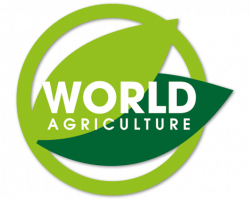Editor’s comments

The three papers to follow (#1806 to #1808) are by Professor Sir John Marsh, by Kirstie Goggin and Professor Murphy and the third by Prof. Murphy.
The first is short notes on the subject of finance and how Brexit is expected to lower food costs by removing barriers to international trade. To what extent is this likely to influence British agricultural production?
There are some intriguing points that must be considered, raised by Sir John. The second paper is by Professor Murphy and Kirstie Goggin. Prof. Murphy is an authority on the vegetable oil industry. Their paper considers problems entailed in providing for the safety of vegetable oils and the reliability of their labelling in the long supply chains for these international edible oils.
Laboratory procedures are being explored to determine reliable methods applicable to laboratories world-wide. The objective is for official labs’ to ensure both the geographical origin of each batch of oil and its purity and freedom from adulterants.
The import of tariff-free vegetable oil to the UK post-Brexit would be likely to influence rapeseed oil production in the UK. (For similar reasons and for reasons related to the much publicised childhood obesity sugar beet production is also likely to be influenced).
Properly processed rapeseed oil has a high content of essential polyunsaturated fatty acids (EFA). It contains approximately 10% N-3 and 20% N-6 polyunsaturated fatty acids, and also 60% N-9 monounsaturated fatty acid, but is more expensive to produce than is palm oil- the world leader. This latter oil contains very little EFA.
During processing unsaturated fatty acids are prone to trans-fatty acid formation for which there is evidence of a relationship with cardio-vascular disease (CVD). Most vegetable oils contain approximately 2% trans-fatty acids.
Samples of rapeseed oil were found to contain 2.8% trans-fatty acids, whereas palm oil contains only <0.5%.1, owing to its saturated nature.
Margarines in the UK contain 0.5% to 2 % trans fatty acids1, as a result of hydrogenation. The low content of trans-fats in palm oil is a consequence of its low content of unsaturated fatty acids –it is a rich source of palmitic acid the high consumption of which is well established to be positively correlated with risk factors of CVD.
One seems to be caught- which evidence takes precedence! Official arbitrary recommendations are for adults to limit their trans-fatty acid intake to 5 g per day.
As fats provide approximately two and a quarter times the energy content of carbohydrates, or of protein, the best advice is to not over consume fats and oils of any origin. One other point to keep in mind is related to this origin and purity of the oil.
It should be remembered that we are considering here natural food products. These inevitably will be subject to the effects of the type of processing regime to which they are exposed. They will also carry a small microbial population.
Oils carried over long distances and held in warehouses at ambient temperature will inevitably deteriorate. Palm oil may be more stable in this situation than are many other oils. Nevertheless, always purchase vegetable oils from a reliable source and having an established brand name.
The third Comment paper (Prof. Murphy) is on the subject of the over-use of N fertilizers in China- now efficiently overcome. This subject was first explored in this Journal in 2014 (reference given in the Comment).
The excessive application of N fertilizers, not only depresses yield, it also causes pollution of water-ways and adds to the climate change problem by conversion to nitrous-oxide, a potent greenhouse gas. This subject is touched on in #1804 in this Journal.
David Frape
Reference
-
FATTY ACID COMPOSITION OF CID COMPOSITION OF EDIBLE OILS IN EDIBLE OILS IN THE MALAYSIAN MARKET, WITH SPECIAL REFERENCE TO TRANS-FATTY ACIDS. TANG, T.S. Journal of Oil Palm Research Vol. 14 No. 1, June 2002, p. 1-8.

